Are you contemplating the next steps in your career after achieving higher education? It can be both exciting and daunting to resign from your current position, especially when you're ready to embrace new opportunities. Crafting a well-structured resignation letter is essential, as it ensures you leave on good terms while expressing gratitude for your experiences. If you're looking for a template to guide you through this important transition, keep reading for valuable insights and examples!
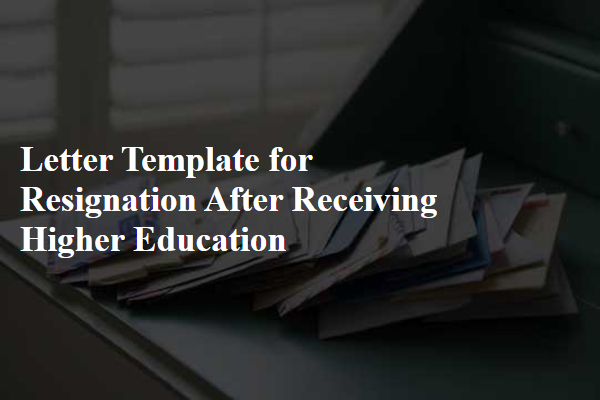
Professional tone and courteous language
Upon completing my higher education, I made the difficult decision to resign from my position at [Company Name], effective [Last Working Day, typically two weeks from the date of the letter]. Pursuing this educational opportunity has significantly shaped my career ambitions and personal development. The support from my colleagues and the valuable experiences gained here have had a profound impact on my professional growth. I genuinely appreciate every moment spent at [Company Name] and look forward to applying my newfound knowledge as I embark on my next chapter. Please let me know how I can assist during the transition period.
Clear announcement of resignation
A clear announcement of resignation typically emphasizes significant personal growth and educational achievements. Pursuing higher education often involves extended commitments at institutions such as universities, leading to new career opportunities or personal development. This transition may impact the workplace dynamic, especially within teams, where the absence of experienced personnel might be felt. It's crucial to outline the intended last working day, providing adequate notice, commonly two weeks to a month in organizations. Acknowledgments to colleagues and management for support and collaboration during the tenure enhance the tone of professionalism and gratitude in the farewell.
Reason for departure related to higher education
Transitioning to higher education often necessitates leaving a current position to focus on academic pursuits. The decision to resign from a job may stem from a commitment to further enhance one's knowledge and skills through advanced studies, such as pursuing a Master's degree in psychology at a prestigious university or enrolling in a doctoral program to specialize in environmental science. Such educational advancements may require extensive time and dedication, making it challenging to balance work responsibilities. This strategic career move aims to open new opportunities, foster professional growth, and deepen expertise within a chosen field. The departure from the current role reflects a desire to invest in personal and professional development, with the intention of contributing more significantly to the workforce in the future.
Acknowledgment of growth and opportunities experienced
Resignation after receiving higher education can be a significant career milestone. This decision often stems from a desire for personal development, typically within an institution like a university or college where various degrees (e.g., Bachelor's, Master's) were obtained. Acknowledgment of growth involves reflecting on new skills acquired, such as critical thinking and advanced knowledge in specific fields, which can enhance career prospects. Opportunities experienced during this period may include internships, networking events, or projects that fostered professional relationships with industry leaders. Ultimately, resigning may mark the transition to roles that better align with one's newly gained qualifications and ambitions.
Offer to assist during the transition period
Resigning from a position after achieving higher education presents a pivotal moment in one's career journey. Crafting a resignation letter that expresses gratitude for the opportunities given while offering to assist during the transition fosters goodwill. Mentioning specific experiences from the workplace, like collaborations on projects or mentorship from supervisors, can highlight personal growth. Additionally, proposing a timeline for the transition period, such as two weeks to a month, demonstrates professionalism. This gesture not only aids in a smooth handover of responsibilities but strengthens professional relationships, ensuring potential future opportunities in the same industry or organization.

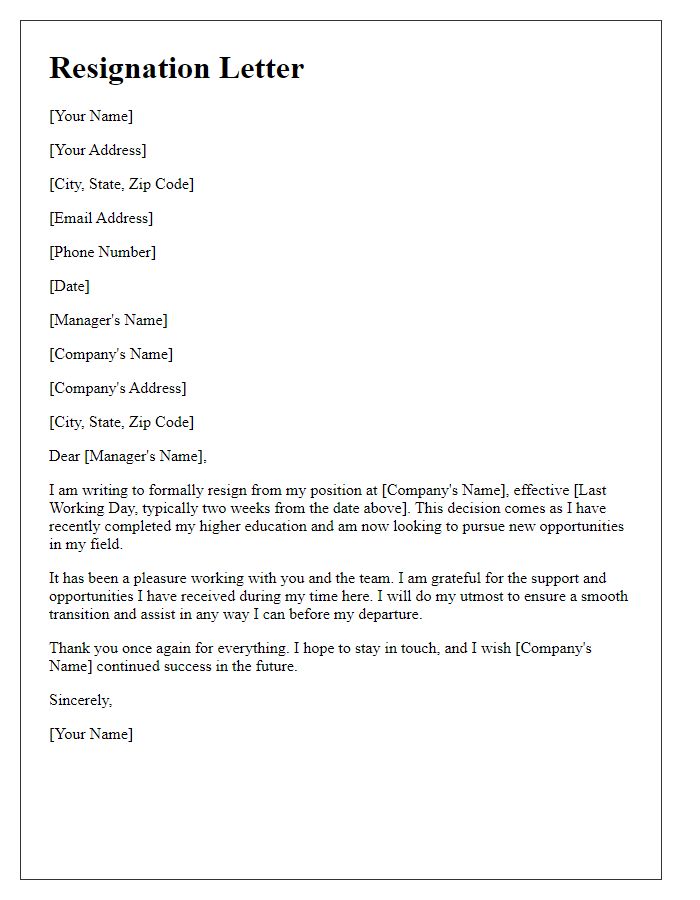
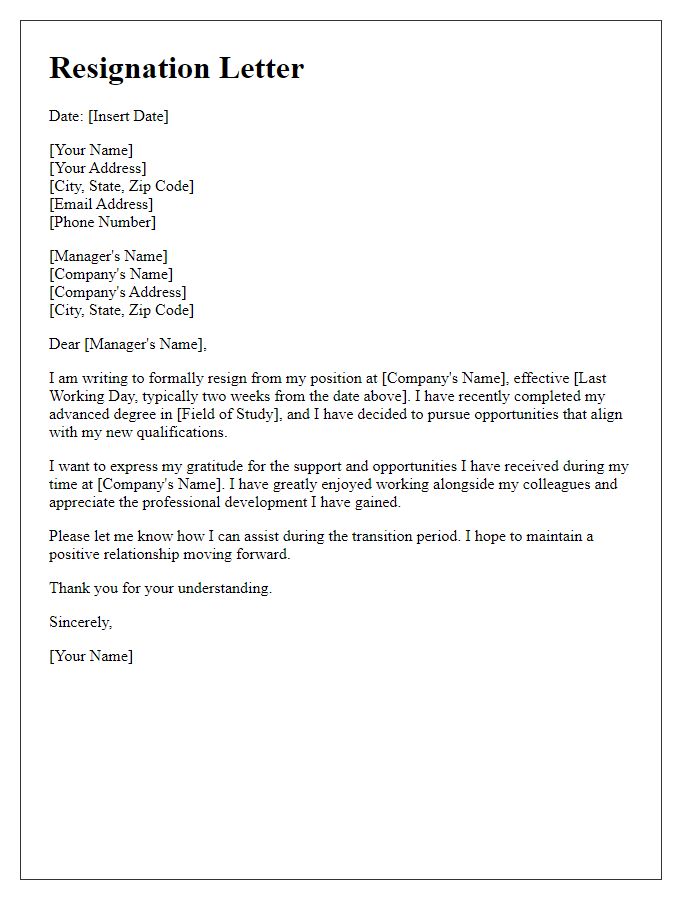
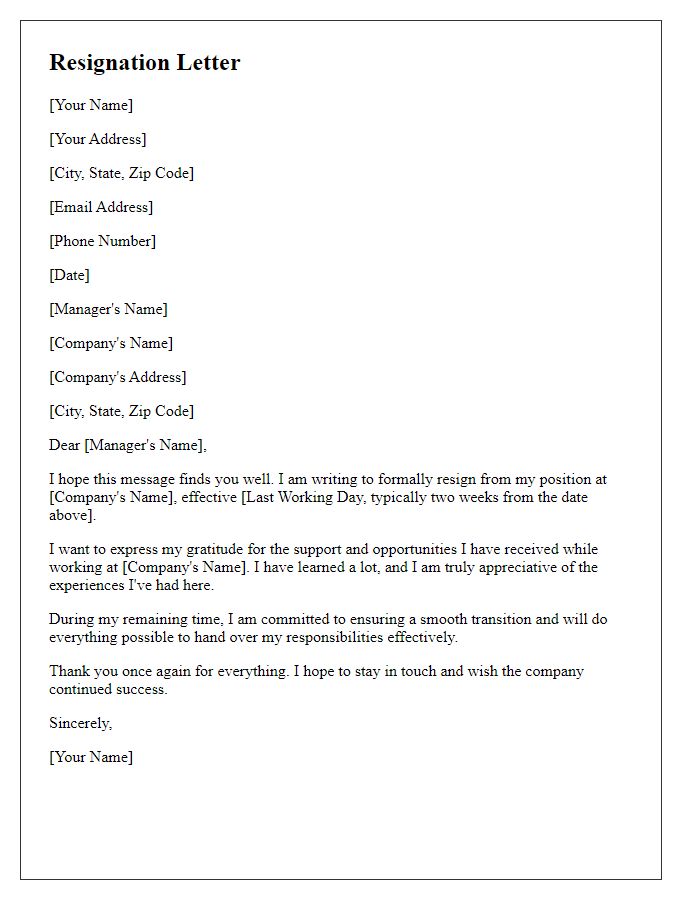
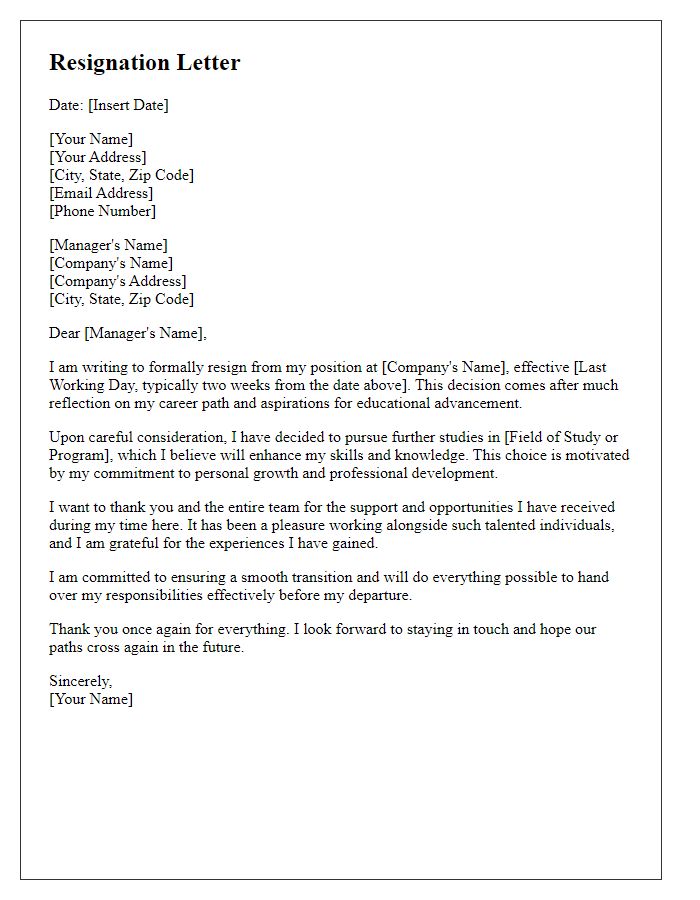
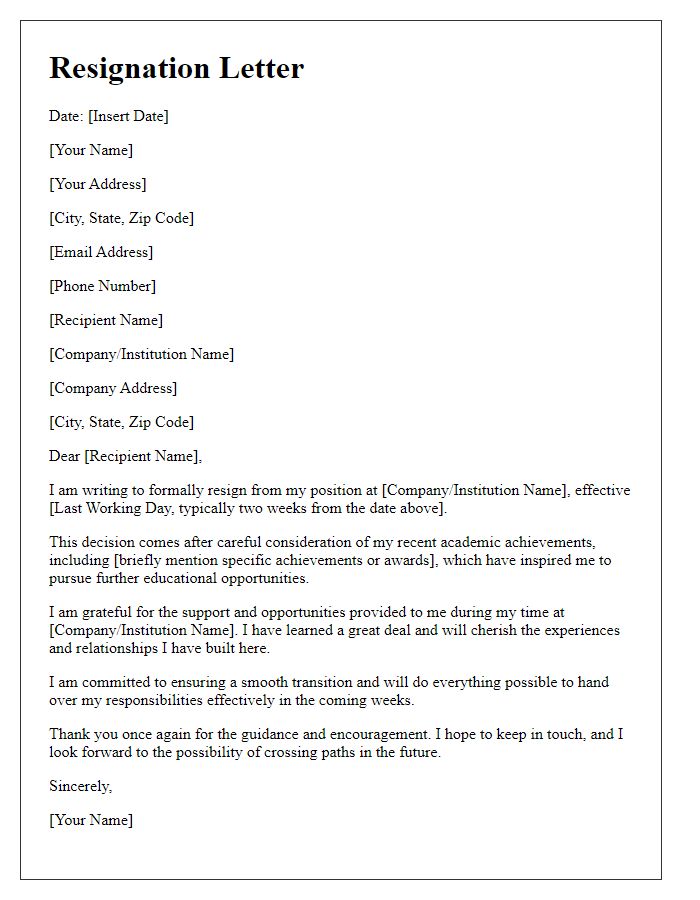
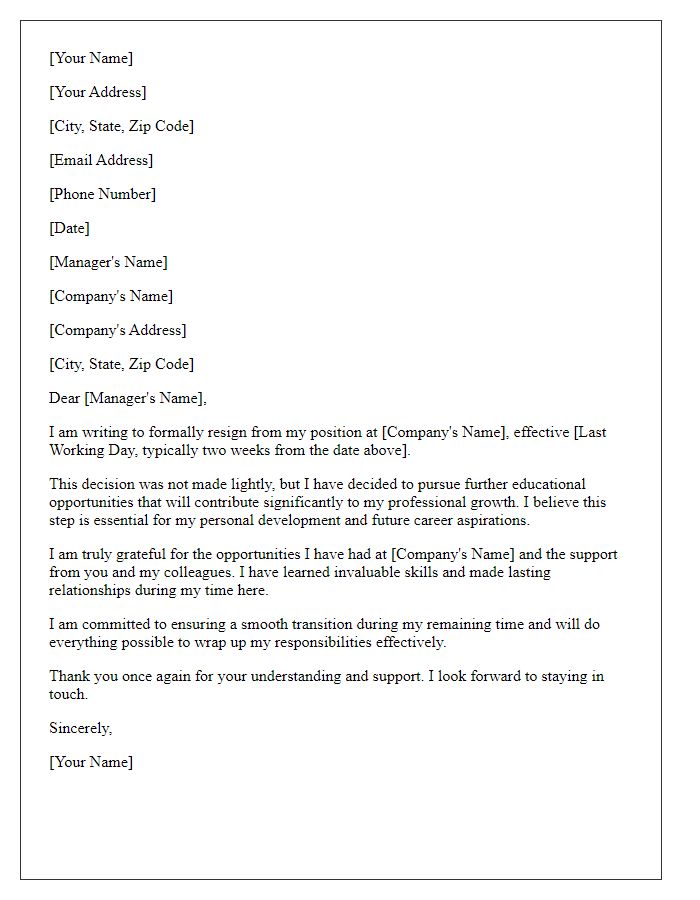

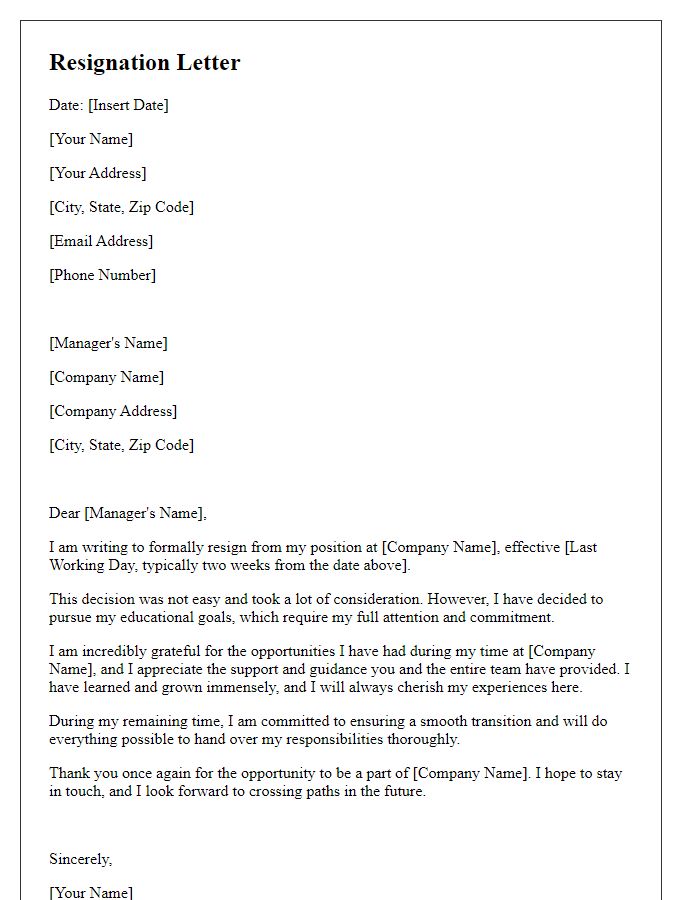
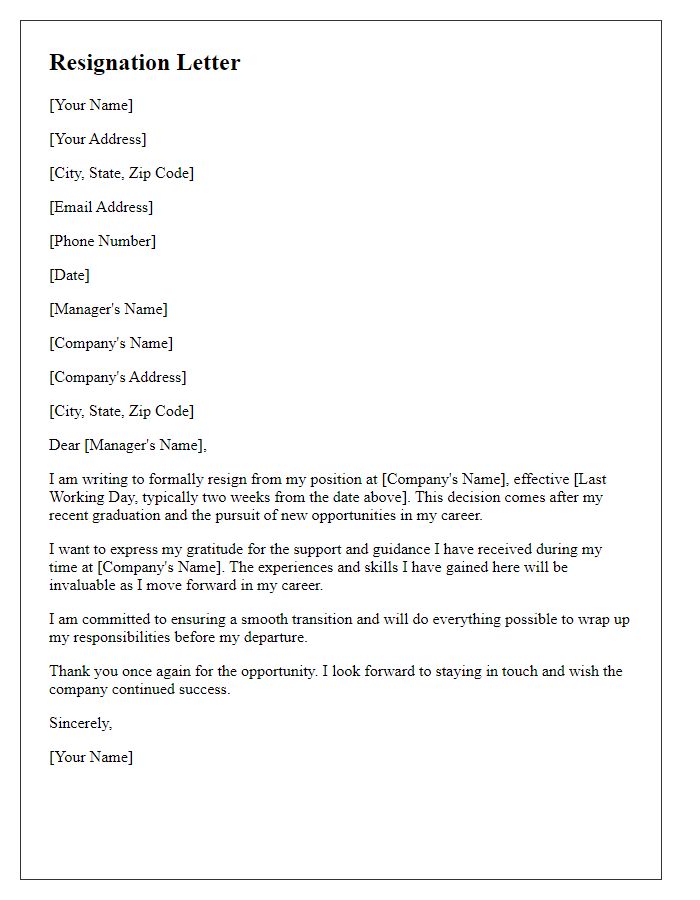
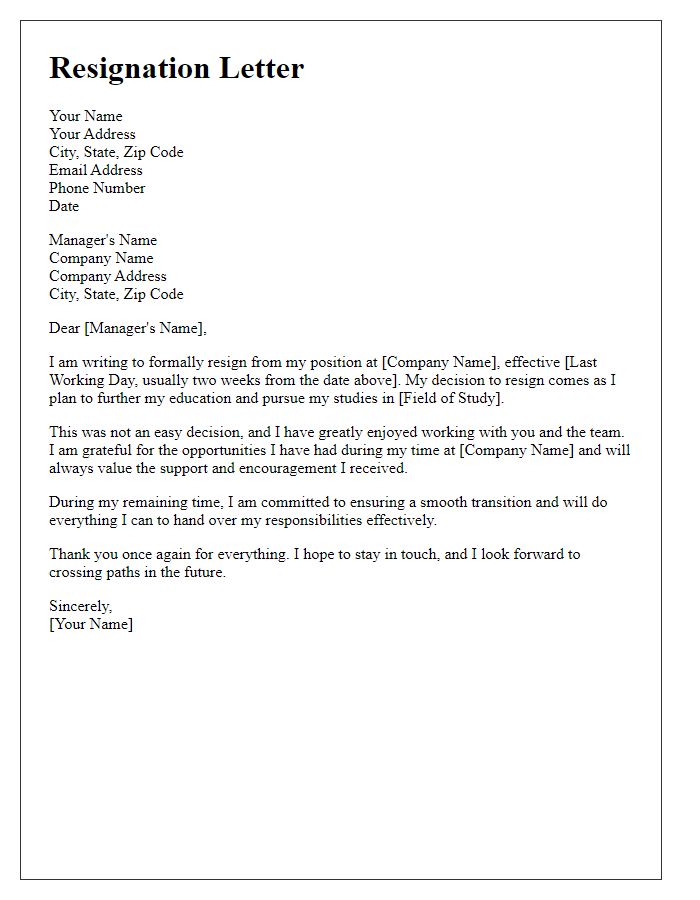

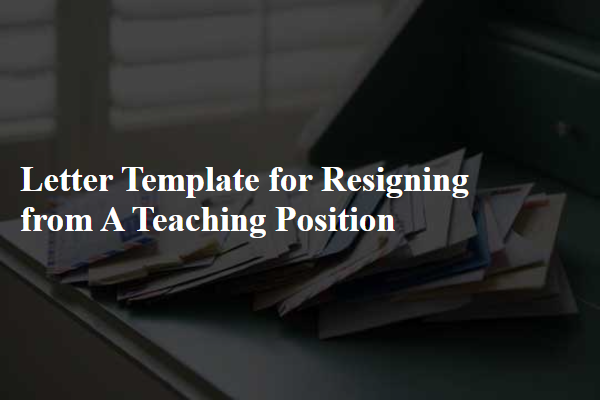
Comments